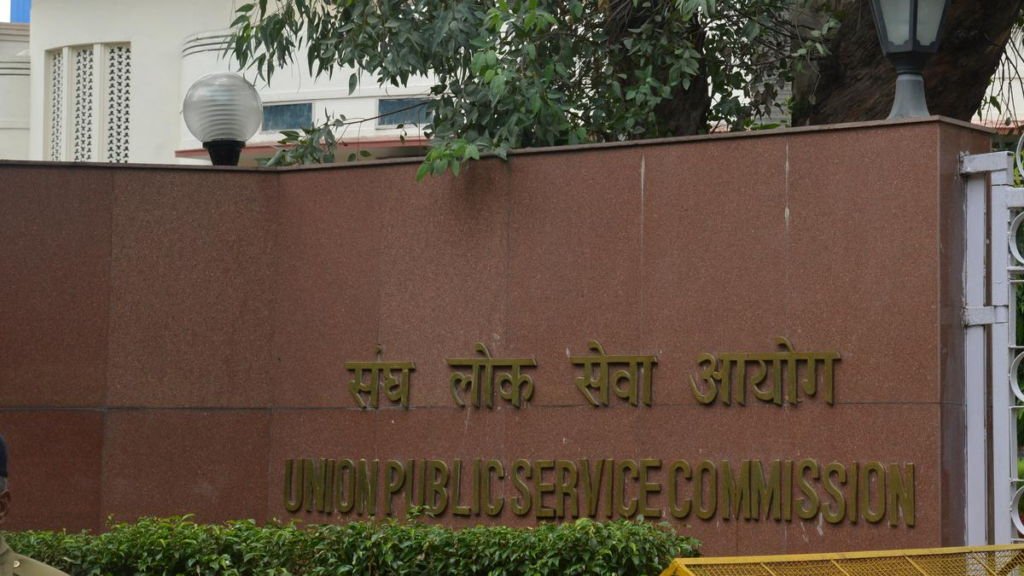UPSC results for the Civil Services Examination 2024 were released on Tuesday with Shakti Dubey heading the list. 1,009 candidates have been recommended for appointment to various civil services positions, including the Indian Administrative Service (IAS), Indian Foreign Service (IFS), Indian Police Service (IPS), and other Central Group A and B Services.
According to the Union Public Service Commission (UPSC), 5,83,213 candidates appeared for the Preliminary Examination on June 16, 2024. Of these, 14,627 were shortlisted for the Mains conducted in September 2024. Then, 2,845 candidates were shortlisted for the Personality Test. Following overall performance in all the three stages, the final list of recommended candidates was announced today.
UPSC Top Performers and Optional Subjects
The UPSC results bring to the fore the achievements of students from various academic backgrounds. Shakti Dubey, with a degree in B.Sc. Biochemistry from the University of Allahabad, tops the list, who chose Political Science and International Relations as her optional subject. Harshita Goyal, with a degree in B.Com from the Maharaja Sayajirao University of Baroda, was at the second rank, who chose Political Science as her optional subject.
Dongre Archit Parag, VIT Vellore electronics engineering graduate, has secured the third rank with Philosophy as an optional subject. Shah Margi Chirag and Akash Garg, engineering graduates, have secured the fourth and fifth ranks. Two men and three women from the list are among the first five ranks.

Representation and Inclusivity
Of the 1,009 shortlisted candidates, 725 are men and 284 are women. Notably, the list also includes 45 candidates in the Persons with Benchmark Disabilities (PwBD) category: 12 orthopedically handicapped, 8 visually impaired, 16 hearing impaired, and 9 with multiple disabilities.
The commission reasserted its commitment to equality and equal opportunity, one that is reflected in the diversity of the final list. Diverse members from various disciplines, backgrounds, and states have made their presence felt, fulfilling the UPSC’s mandate to democratize access to India’s best administrative jobs.
What Do the UPSC Results Reveal About Candidate Preferences?
One of the trends that is most prominent in the UPSC results is the growing popularity of Political Science and International Relations as an optional subject. Both of the top two rankers went for this subject, showing its continued popularity. Meanwhile, Philosophy—picked by third-rank holder Archit Parag—also made a strong showing, showing that less popular subjects can lead to success if mastered well.
The over-representation of engineering graduates at the top of the hierarchy remains a reflection of the high proportion of technically trained applicants. But the increasing proportion of humanities and commerce graduates is a reflection of the growing academic pool among successful applicants.
What impact will UPSC results have on future appointment and training?
These appointed officers will be distributed to IAS, IFS, IPS, and other central government services based on rank, preference, and reservation quota. Allocation will now be conducted by the DoPT and followed by induction training at the Lal Bahadur Shastri National Academy of Administration (LBSNAA) at Mussoorie. The last cut-off marks and individual marks shall probably be uploaded on the Commission’s web site within a few days from now. Roll numbers and ranking may be viewed by candidates on www.upsc.gov.in.
UPSC Results: Is the gender balance of Indian bureaucracy rising?
The UPSC results once more put into the spotlight the increasing presence of women in the higher ranks of administrative services. With three among the top five being women, gender representation in civil services appears to be increasing. This is a sign of a shifting political scenario in Indian politics, where women are finding themselves more and more in the forefront at the national level.
Further, the induction of PwBD candidates also shows the growing commitment of the UPSC towards an inclusive and representative bureaucracy. With better support systems and facilitating test conditions, larger numbers of aspirants from marginalized sections are likely to sit for the tests in the future.
Examinations Structure and Trends
The Mains is a two-phased examination: Mains exam and Personality Test. The Mains exam is a written test followed by the Personality Test or interview. The candidates who clear both the phases are shortlisted for the Personality Test or interview.
This year’s figures add strength to the stiff competition of the exam. Of over 5.8 lakh candidates who sat for the Preliminary exam, a mere 1,000 were eventually recommended for appointments, registering a selection percentage of less than 0.2%.
ALSO READ
UPSC NDA 2 Results Finally Out!
DU TOPPER POST VIRAL: Sparks Debate on Skills vs. Marks
https://www.ndtv.com/india-news/5-tourists-injured-in-attack-by-terrorists-in-j-ks-pahalgam-8226458
Pingback: UPSC Releases 2026 Exam Calendar